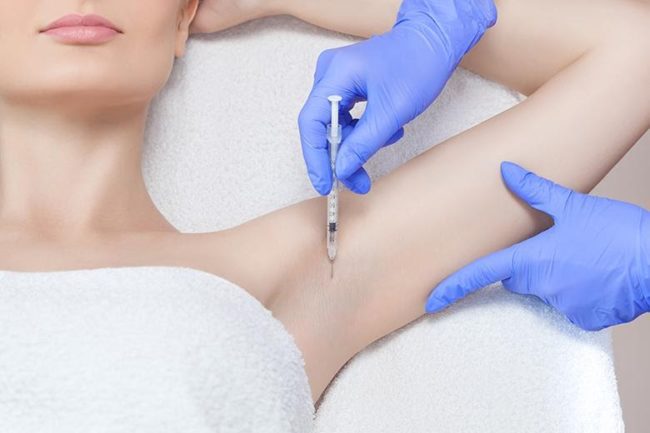
Winter is coming, and summer is left behind. Those who hate the heat and being sweaty all the time can breathe out with relief. But, unfortunately, not everyone is so lucky. Some people sweat despite the weather, nervousness, or stressful situations. Excessive sweating is a part of their everyday life. How is this phenomenon called? Is it an illness? Is it possible to deal with it? Let’s discuss in more detail.
Is excessive sweating a medical condition?
For most people, sweating is a natural reaction of the body to the temperatures, the process of adapting to the environment, and cooling down to feel more comfortable.
But, as surveys show, nearly 5% of people around the world are suffering from excessive sweating without any reason. It is also known as hyperhidrosis. Even though this disorder is highly unpleasant, it is not dangerous, although it can be embarrassing. And yes, it is a medical condition.
Mostly, hyperhidrosis causes inconvenience in everyday social life situations, but in severe cases, it can make a simple daily routine much harder. For example, make it hard to hold a pen, grab a doorknob, or shake hands with another person.
The body parts that sweat the most are the armpits, palms, and feet. Sometimes, sweat can drip down the face and burn the eyes, making the person feel uncomfortable and repeatedly wipe it off.
What provokes hyperhidrosis?

There are two kinds of hyperhidrosis – primary and secondary.
Primary hyperhidrosis triggers extreme sweating in the armpits, palms, face, and legs. Because of hormones or when we are emotional, overheat, move a lot, our sweat glands are activated automatically. And if these glands “react disproportionately”, it evokes excessive sweating. Doctors can’t define why people suffer from primary hyperhidrosis, but they affirm that it can be inherited.
Secondary hyperhidrosis provokes extreme sweating of the whole body or in separate large areas. Differently from primary hyperhidrosis, secondary is usually provoked by medical condition or medicaments. Those conditions incorporate menopause, pregnancy, anxiety, obesity, rheumatoid arthritis, etc.
As you can see, excessive sweating is not considered a mental disorder but can result from one. Listen to yourself and consult with your doctor if something starts bothering you.
How do I fix hyperhidrosis?

As hyperhidrosis causes many inconveniences, people come up with various solutions to this problem: Botox, medications, pills, folk remedies, etc. Let’s look at the most popular ones.
For primary type, doctors recommend:
- Antiperspirants that include aluminum;
- Clinical strength deodorant;
- Anticholinergics drugs. They have an effect on nerve signals to sweat glands;
- Botox injections for armpits;
- Medications against anxiety if the sweating is caused by a mental disorder.
Speaking about the secondary type, the best method to reduce its intensity is to find out the reason and start proper treatment. If you suffer from excessive sweating, inform your doctor and start looking for the problem’s root.
Conclusion
As you can see, hyperhidrosis is quite manageable. Thanks to modern treatments and development in the medical sphere, people have many options for dealing with this problem. It is important not to be embarrassed and see the doctor in time because the faster you’ll start working on it, the faster you’ll see the result. Take care of your health, and stay safe!



